The surgical industry of Pakistan dates, back to the 19th century when some British doctors got their surgical instruments repaired by the skilled workers of Sialkot and thus it laid the foundation for the Sialkot Surgical Industry
The world trade in the medical and surgical industry is huge which goes up to 30 billion dollars. Although Pakistan fetches a very small share in the world trade, still the local industry possesses specialized skills and workers’ expertise which carry a century-old experience in producing these sophisticated items. Pakistani products are sold in highly developed markets of Germany, France, the USA, Belgium, etc which are also bracketed as high-income markets.
This is a sector where Pakistan enjoys specialized skills. Products are exported into high-income markets of USA, Germany & France. The total world market is estimated at 30 billion USD. During 2010-2011 Pakistan exported Surgical and medical instruments worth USD 260.60 million. This shows an increase of 13.7% over 2009-2010 export figures of 229.20 million.
The world trade in the medical and surgical industry is huge which goes up to 30 Billion dollars. Although Pakistan fetches a very small share in the world trade, still the local industry possesses specialized skills and workers’ expertise which carry a century-old experience in producing these sophisticated items. Pakistani products are sold in highly developed markets of Germany, France, USA, Belgium, etc. which are also bracketed as high-income markets.
The average export price of Sialkot-made surgical items is between dollar 1.5 to 5 (for disposable products) which is higher than the Chinese export price of USD 0.35 per item. Pakistan has no competitor in Ophthalmic handheld instruments.
The city of Sialkot is very well known particularly in Europe for its Surgical industry. There are around 2300 companies engaged in this industry that produce on average 150 million pieces per year with an estimated value of around Rs. 22 billion. Almost 95% of production is export-oriented. Pakistan basically produces basic disposable instruments.
The shift of emphasis in the global leading manufacturers is on high-value-added products. Practically Sialkot has no competitor on basic components and most of the production from Germany has shifted to Pakistan. The result is that Pakistan produces semi-finished goods which are repackaged in Germany, Europe & USA and then sold internationally at higher prices. The very low quantity is consumed locally due to low demand by public health entities and private sector hospitals. In fact, this Sialkot-based industry has limited contacts with the local end users, they normally operate through bulk buyers/traders. Out of 2300 major companies, 30 units are large integrated units. These bigger companies are technically advanced with a lot of mechanization in their production processes. They have also diversified products into medical mechanized devices. The second category is medium type of firms which are around 150 in number and they handle exports of above 100 million. The small units are 2000 in number and they handle exports of up to 80 million.
The details of the surgical instruments that are being exported are under
- Instruments and appliances used in medical or veterinary sciences
- Instruments and appliances, used in dental sciences
- Needles, catheters, cannulas
- Syringes, with or without needles
- Oxygen therapy, artificial respiration/ therapeutic respiration
- Dentists, barbers, or similar chairs and parts thereof
- Medical, surgical, dental, or veterinary furniture and parts
- Dental drill engines, whether or not combined on a single base equipment
- Ophthalmic drill engines, and appliances
- Breathe appliances & gas masks, protective masks
- Tubular metal needles and needles for sutures
- Mechano-therapy application; massage app; psychological aptitude test apparatus
